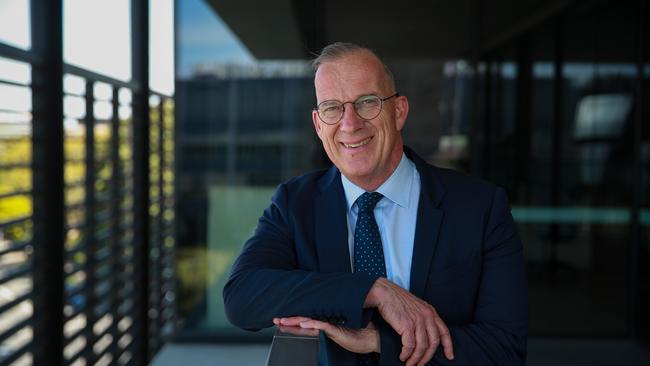Uni chief clings to $1.5m salary as staff face axe
Australia’s highest-paid vice-chancellor announced $270m of cuts, including the loss of casual lecturers, while keeping his $1.5m salary.

Australia’s highest-paid vice-chancellor, the University of Sydney’s Michael Spence, has been accused of being “tone deaf” after announcing $270m of cuts, including the loss of casual lecturers, while maintaining his own $1.5m salary.
Dr Spence ignored the precedents set by his counterparts at the University of Melbourne, Monash University and UNSW, who are also implementing major budget cuts and who each voluntarily took a 20 per cent pay reduction.
Asked why Dr Spence and his executive team did not reduce their salaries, a university spokeswoman said: “All universities are focusing their recovery efforts in different ways. We believe that we’ll gain the necessary savings by focusing on the measures we’ve outlined today.”
Read also: Why uni chiefs earn too much | Unis announce massive cuts |Tear down research walls | Unis shouldn’t always be blamed | QUT’s intriguing new chancellor | Into the breach with COVID-19
The university is facing a $470m budget shortfall this year following the loss of international students due to the COVID-19 travel ban and had announced $200m of cuts earlier in the year.
The head of the National Tertiary Education Union, Alison Barnes, said Dr Spence’s decision to maintain the high salaries of himself and his executive team “showed incredible disregard for staff who the university has depended on over the last few weeks”.
In recent weeks, academics at the University of Sydney rapidly moved all teaching online after COVID-19 forced the institution to end face-to-face classes.
Ms Barnes said she was particularly concerned about the position of casual and sessional teachers. Dr Spence said their numbers would be reviewed in line with the decline in students.
In his message to staff he said that “casual staffing budgets will be reviewed by each faculty and school to reflect expected student load”. Together with a reduction in hiring of new staff, the measure is expected to save the university $93m.
“That Michael Spence decides to maintain his own salary while cutting employment for those most vulnerable, strikes me as extraordinarily tone deaf to the circumstances of insecurely employed workers,” said Ms Barnes, who is national president of the NTEU. “It shows a total disregard for their emotional and financial welfare.”
Ms Barnes said the university’s actions confirmed that its business model “depends on casuals being dependable but disposable”.
Dr Spence also told staff that he and his executive would not get a salary rise this year while staff covered by the university’s enterprise agreement would get a 2.1 per cent salary increase. He also thanked staff for their “strength and dedication”. “In finding these savings, let me reassure you that our guiding principle is to minimise the impact on jobs as much as possible,” Dr Spence said.
The vice-chancellors of the University of Melbourne, Monash University and UNSW are all facing similar budget shortfalls to the University of Sydney this year, due to the loss of international students. But all three, who also earn well over $1m a year, have agreed to a 20 per cent salary cut for themselves and their senior executives as they go about making spending cuts.
The latest available salary data shows that Dr Spence earned between $1.515m and $1.529m in 2018, making him Australia’s highest-paid university leader.
After 12 years at the University of Sydney, Dr Spence will leave at the end of the year to become the head of University College London, which far outranks the University of Sydney in prestige in the academic world. However, his salary at UCL will be less than half his Sydney salary, and UCL said it had been “benchmarked and set against other world-leading UK universities, including Oxford, Cambridge and Imperial”.
“Dr Spence has taken a pay cut so his salary is in line with these peer universities,” UCL said.




To join the conversation, please log in. Don't have an account? Register
Join the conversation, you are commenting as Logout